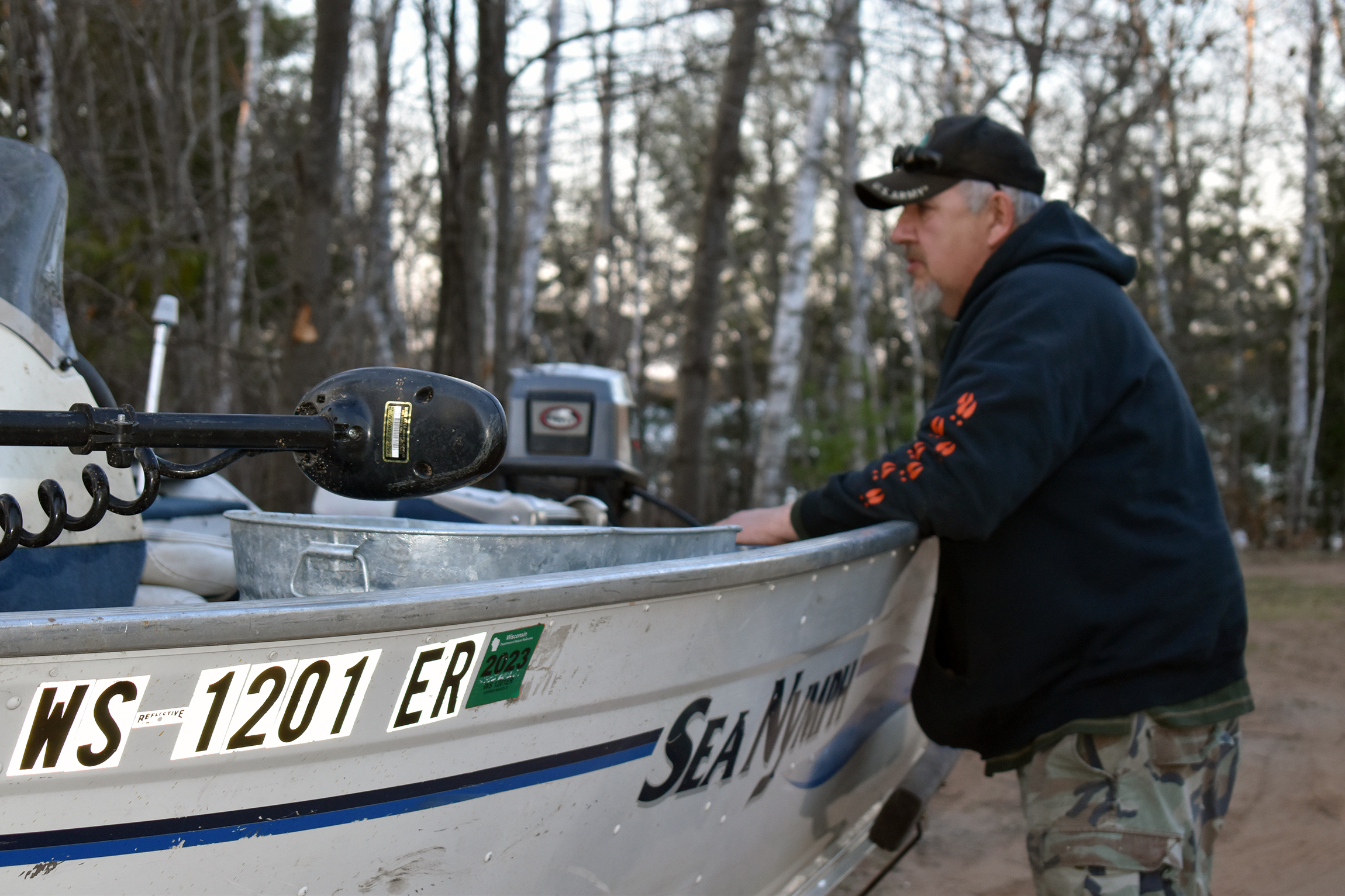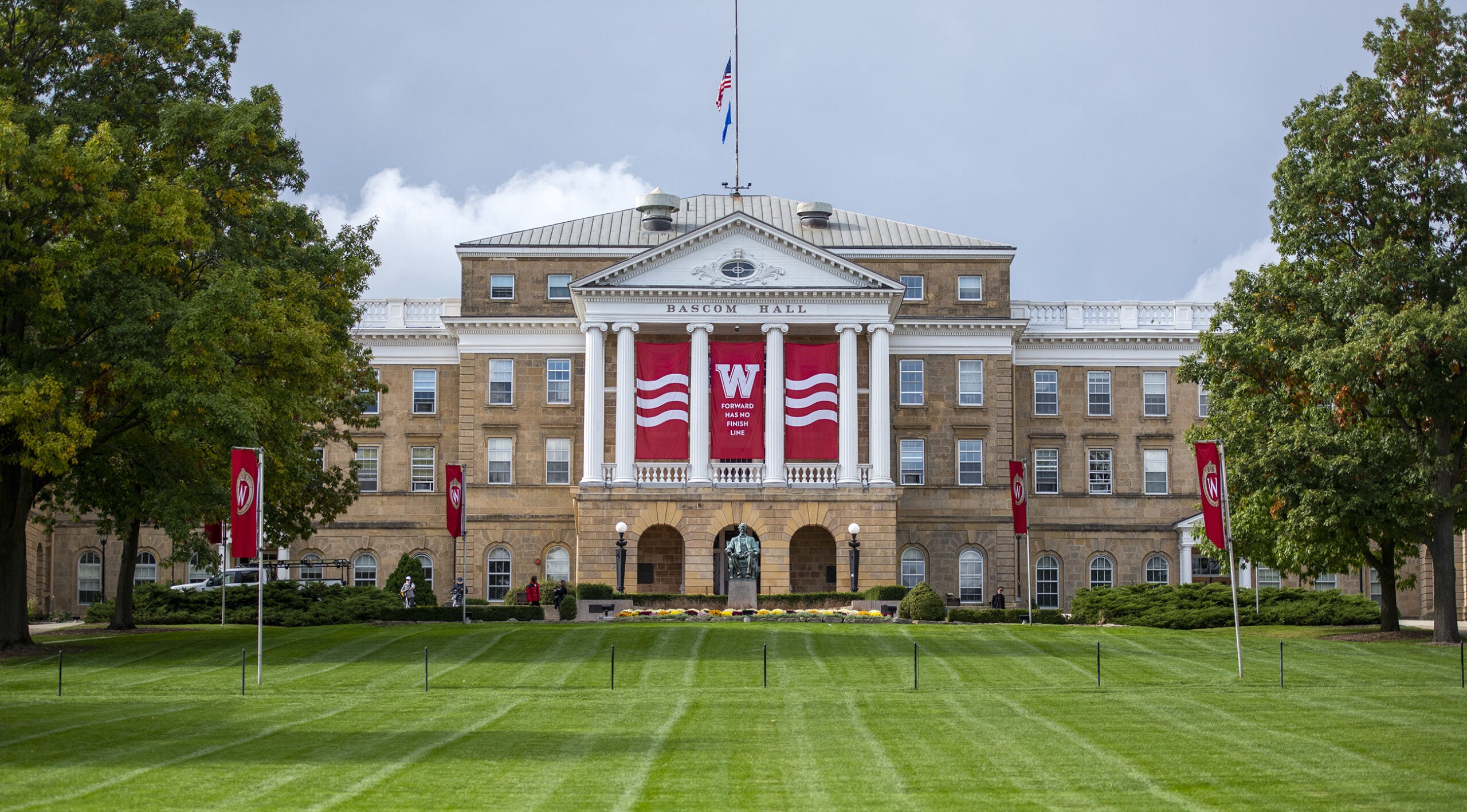The New York Times reported the Justice Department will take a new look at affirmative action and possibly sue colleges that use the practice. We find out about the plan and what it could mean for college admissions. Opponents of gun control legislation often say that more “good guys” with guns can help prevent mass shootings. We hear about new research from Stanford suggesting that’s not the case. Also, we discuss a program on the UW-Madison campus that makes free produce available to students.
Featured in this Show
-
New Research Refutes Theory That Guns Make Society Safer
In the wake of mass violence, one sentiment is commonly expressed: “The only thing that stops a bad guy with a gun, is a good guy with a gun,” as National Rifle Association CEO Wayne LaPierre famously put it in 2012, soon after the tragedy at Sandy Hook Elementary School in Newton, Conn.
But research conducted by Stanford University scholars for a study by the National Bureau of Economic Research shows that the “good guy with a gun” theory might not be true.
There are significant differences from state to state of how easy it is to purchase a gun and where firearms can be carried and how openly, according to John J. Donohue, a professor at the Stanford Law School and one of the lead authors of the study. He said that those variations present what a politically and culturally charged issue it is.
A recent Pew Research Center survey shows that 38 percent of gun owners say that there is a gun that is “both loaded and easily accessible to them all of the time when they’re at home.” And two-thirds of gun owners say protection is a major reason they own a gun.
“Clearly, in the United States, many people think they will be safer with guns. Interestingly, in other countries that are more restrictive, that attitude is much less widespread,” Donohue said.
The new study looked at 33 states that adopted right-to-carry laws and compared them to others that hadn’t. Donohue said that approximately 10 years after adoption of right-to-carry, the violent crime rate in those states was 13 to 15 percent higher than in the control states. He added that the increase was gradual during those 10 years, not a sudden spike.
“So, the evidence seems to suggest allowing more concealed carry outside the home contributes to an increase in violence crime,” Donohue said.
Donohue has been quoted as saying that the LaPierre quote about stopping bad guys who have guns is “inaccurate, misleading, and somewhat offensive.” He points out that in cases where a shooter is stopped by a bystander, they are often not armed themselves. That includes the person who intervened when former U.S. Rep. Gabby Giffords was shot in 2011.
“The killer was not stopped by anyone with a gun, but was rather stopped by a 74-year-old retired (U.S.) Army colonel who had been shot himself and jumped on top of the shooter when he was reloading. And indeed, if you look at the evidence on this, many more mass shootings are stopped by unarmed individuals than are stopped by individuals carrying concealed hand guns.” Donohue said.
Donohue went on to clarify that armed police officers play the most significant role in stopping episodes of mass violence, but that does not make a case that armed civilians are useful in those situations.
So why does violence actually go up in states where right-to-carry is in place? Donohue said that the presence of one or more firearms can turn a heated situation from tense to deadly very quickly. In addition, Donohue said that weapons belonging to people who have concealed carry permits are frequently stolen or lost. So the guns end up in the hands of the very criminals that the gun owners hope to deter or defend themselves against.
“In a sense, concealed carry holders are often unwittingly arming criminals, and that obviously causes problems for violent crime in the state,” Donohue said.
With this new study adding to existing evidence that more guns doesn’t equal safer communities, Donohue said he feels strongly that the U.S. should reassess its attachment to firearms.
“I think if you look around the world, for example, to other countries that have struggled with these issues, one sees that it is often far more effective to try to limit the influence of guns in society rather than to propagate that influence,” Donohue said.
-
Trump Administration Investigates And Possibly Sues Schools Over Affirmative Action
On Tuesday night the New York Times reporter that the U.S. Department of Justice plans to investigate and possibly sue colleges over their affirmative action admissions policies. We talk to an expert in race and education about the plan and what kind of ramifications it might have for higher education in the United States.
-
Campus Program Dispenses Free Produce To UW-Madison Students
We learn about the UW Food Shed, a program setup to give away free fresh produce that is harvested and leftover from research at the UW-Madison.
-
UW Campus Food Shed Gives Produce To Community For Free
College students notoriously rely on cheap, easy food like ramen noodles. But a new program on the University of Wisconsin-Madison campus is trying change that by making fresh produce an easy option for students, too. It’s called the UW Campus Food Shed.
Founder Hannah DePorter got the idea from previous work.
The UW-Madison senior was administrative director for a sustainable agriculture organization on campus that gives out free produce to students, staff and community members in Madison on Fridays. She was also working as a student in a plant breeding lab. In both positions, there were vegetables and other produce left over that were just getting composted.
“I wanted to be able to extend the life of all of these vegetables that are just being wasted and put them into people’s hands,” she explained.
The Food Shed program has four refrigerator locations: one at the Student Activity Center, one at Science Hall, one at the Plant Sciences Building and one at Allen Centennial Gardens. Those four locations were chosen because they’re spread out on campus — two are on the west side, two are on the east side.
“It creates more accessible locations for individuals to go depending on where they are, and all those places are always frequented by faculty, students and staff, so we want to reach as many people as possible,” DePorter said.
People who have donations alert the student and bring it to her or she picks it up. She then puts it in a refrigerator location. To let people know when there’s food available, DePorter takes a picture of what’s in the fridge and shares it on Facebook, along with a list of what’s in it, which fridge it’s in and what the hours are to pick it up.
“Everything is usually gone within 24 hours of putting stuff in, and some days we have 200 pounds of produce going into these refrigerators,” she said.
Donations have been abundant as well. Because one of the fridge locations is in the Plant Sciences Building, a lot of research labs can easily drop off their extra produce on their way back from harvesting.
DePorter said the two goals of the program were to reduce food waste and to increase food security. She added that food insecurity is pretty prevalent on the UW-Madison campus, even if most people don’t see it.
The senior said the next step for the Food Shed would be to work with local farmers who have excess produce and to get more people involved.
-
New Research Confirms That 'Good Guys With Guns' Don't Reduce Violence
Gun rights advocates invoke the theory that a good person who is armed can prevent a mass shooting or reduce the number of injuries and deaths. But new research out of Stanford does not support that position.
Episode Credits
- Judith Siers-Poisson Host
- Veronica Rueckert Host
- Judith Siers-Poisson Producer
- Amanda Magnus Producer
- Karl Christenson Producer
- John J. Donohue Guest
- Kevin Brown Guest
- Hannah DePorter Guest
Wisconsin Public Radio, © Copyright 2026, Board of Regents of the University of Wisconsin System and Wisconsin Educational Communications Board.


